Description
ABSTRACT
A Critical Analysis of Nigeria’s Freedom of Information Act
Dr. Ifeoma Oluwasemilore*
The paper examines the Freedom of Information Act (FOI Act) with special interest in its relevance in the country’s anti-corruption war. The purpose of the Act is to make public records and information more freely available. The Act also seeks to protect serving public officers against any adverse consequences from the unauthorised disclosure of certain kinds of official information, and establish procedures for the achievement of these purposes. The paper notes that the Act will enable citizens to hold the government accountable in the event of misappropriation of public funds or failure to deliver public services. The paper further examines among other things, the extent to which FOI Act 2011 had been implemented, the challenges confronting its applicability as well as the prospects of the Act. The paper contends that Freedom of Information is a fundamental indicator of economic development and progress. The paper recommends implementation of the FOI Act, adding that a strengthened Freedom of Information regime will enhance citizens’ demand for accountability and check corruption.
Keywords: Freedom, Information, Implementation, Challenges, Anti-Corruption, Nigeria.
INTRODUCTION
Nigeria’s Freedom of Information (FOI) Act was signed into law on May 28, 2011, after the longest legislative debate in the history of Nigeria. The debate lasted for over 12 years. The law was passed to enable the public access government information, in order to ensure transparency and accountability. The bill was developed by the Freedom of Information Coalition, a network of over 180 civil society organisations in Nigeria, comprising civil rights, grassroots and community-based Non-Governmental Organisations campaigning a Freedom of Information (FOI) Act to ensure accountability and transparency in public institutions in Nigeria.1 The FOI Act aims to make public records and information more freely available and to protect public records and information, in accordance with the public interest and protection of personal privacy. It also seeks to protect serving public officers against any adverse consequences from the unauthorised disclosure of certain kinds of official information. The Act further regulates conflicts between its provisions and those of other enactments, for instance the Criminal Code, Penal Code and the Official Secrets Act that prescribe criminal penalties for actions connected to the disclosure of Information. It enables citizens to hold the government accountable in the event of the misappropriation of public funds or failure to deliver public services. The objective of this paper is to critically review and assess the content and application of the FOI Act. To this end, this paper is divided into nine sections including the introductory remark: Section two addresses the need for freedom of information; section three is a review of the Act; section four treats the applicability; section five deals with the limitation; section six addresses the challenges while section seven examines the Freedom of Information Act vis-à-vis Nigerian’s anti-corruption war; section eight is the conclusion, while section nine contains the recommendation.
* Ph.D., BL, MLS, M.Phil. Lecturer, Department of Commercial and Industrial Law, Faculty of Law, University of Lagos, Nigeria
- Other sponsors include the Civil Liberties Organization (CLO), the Nigerian Union of Journalists (NUJ) Lagos branch etc.

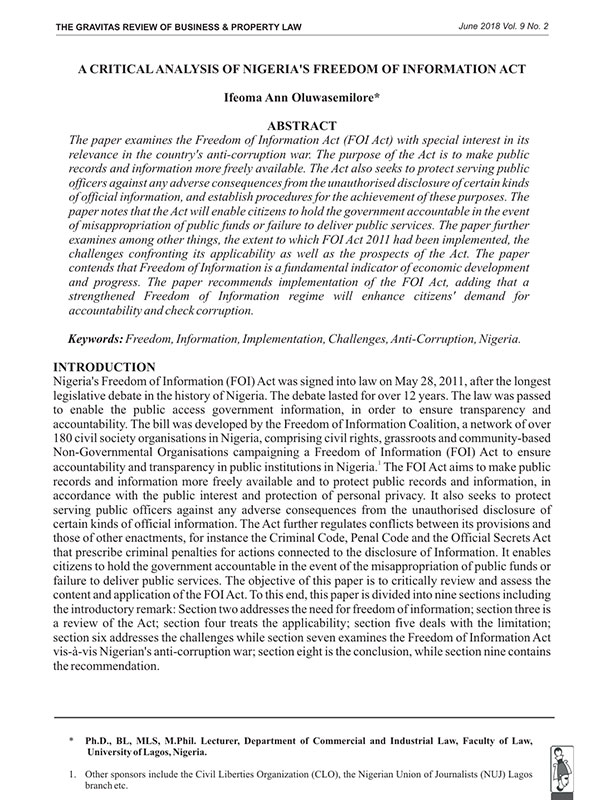
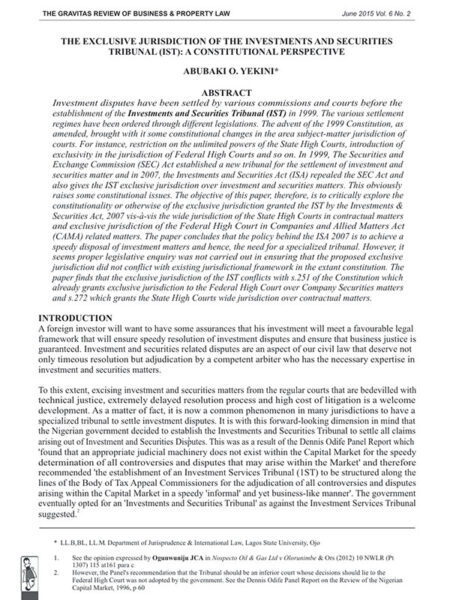
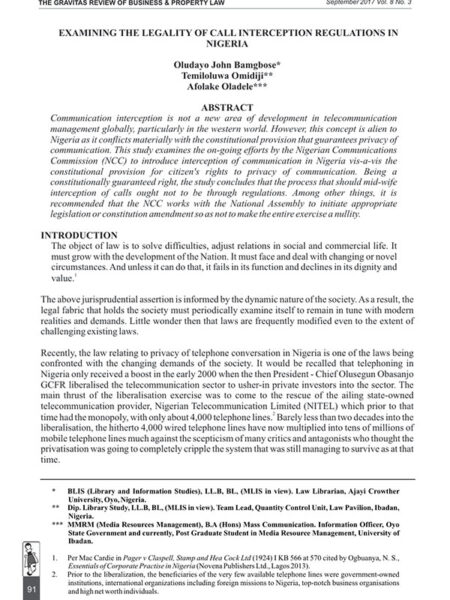
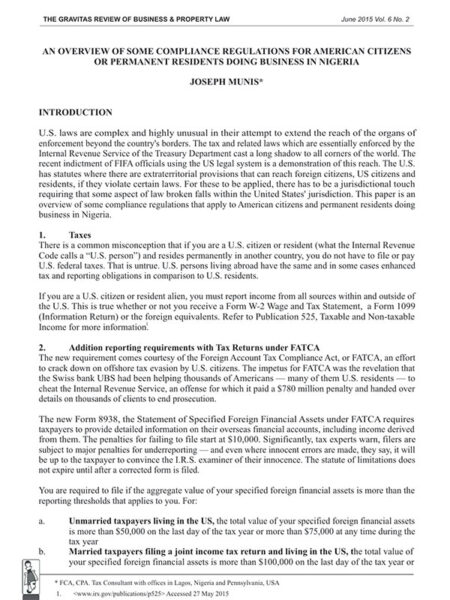
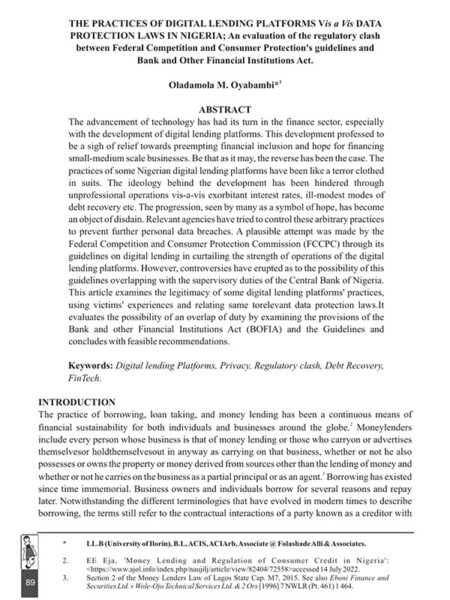


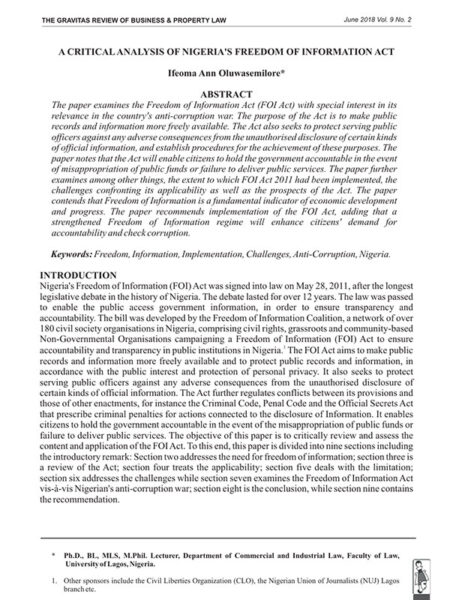
Reviews
There are no reviews yet.